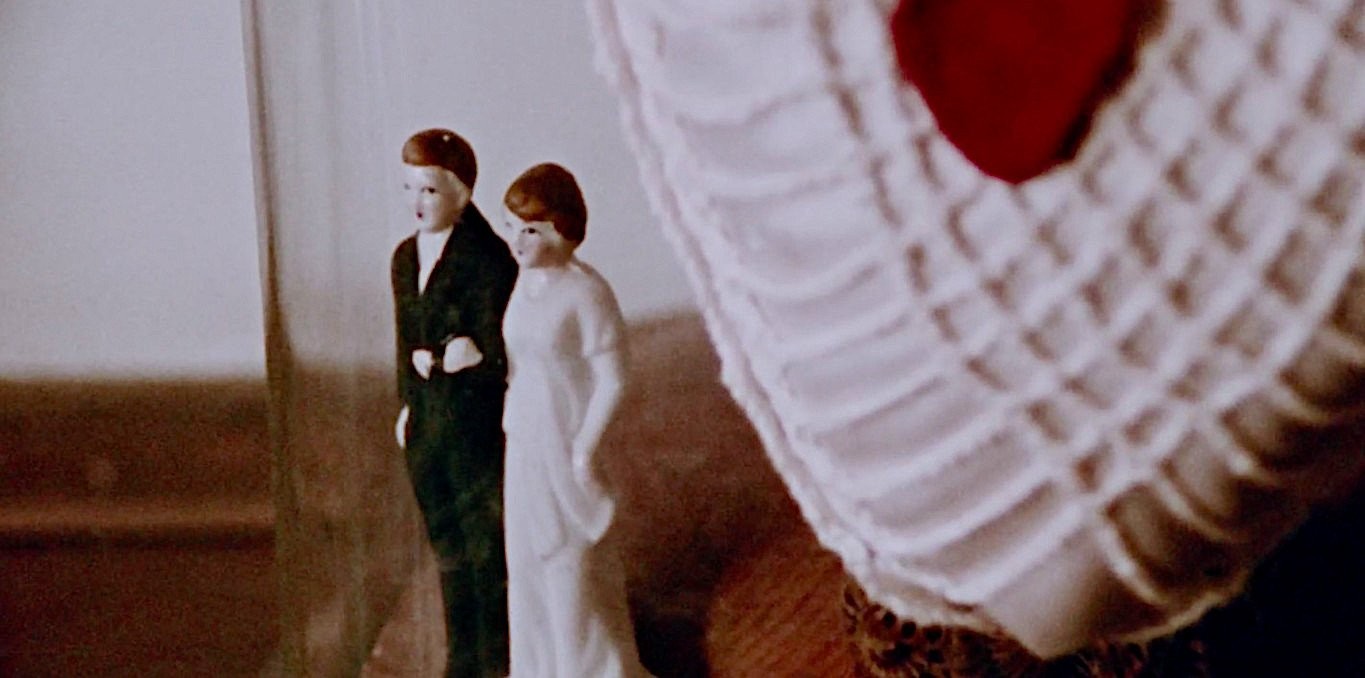Seen / Not Seen

Hors champ has recently released a special issue focusing on the oeuvre of filmmaker Mireille Dansereau, following the recent restoration of her film Dream Life (1972). This dossier seeks to amplify the impact of this long-unavailable landmark film and delves into the multifaceted segments of the director's filmography. Circulating until 2022 as a well-kept secret among cinephiles and a handful of scholars attentive to the history of feminist and women's cinema, Dream Life, the filmmaker's debut feature and notably the first fiction feature directed by a woman in Quebec (and the first feature film funded by ACPAV), establishes a critique of patriarchy through laughter and imagination, within a narrative of friendship that playfully dismantles marital norms.
The reintroduction of this luminous film raises historiographical questions, primarily concerning the inclusivity of women in the writing of cinema history. Moreover, it invites reflection on the effects of rupture and transmission between second-wave feminism and contemporary feminisms. Through a collection of reflective and creative perspectives, the contributions gathered in this dossier highlight the motifs activated by the filmmaker throughout her filmography and sketch a new horizon of reception, attentive to the intergenerational aspects of feminisms. Through thought and images, it attempts to give substance to a diverse body of work that continually adapts to the times it traverses.
Invited to curate a selection of the filmmaker's documentary works for Tënk, we opted for four films that constitute segments of her polymorphic filmography and which we felt corresponded to key moments in Dansereau's career. These choices also seemed to outline a certain trajectory of ideas and angles related to what turns out to be one of the filmmaker's most vivid concerns: a perpetual emergence from foreclosure, coupled with ways of staging speech and anchoring it to images.
In One Day... (1967), Dansereau's first short film, we journey with a young girl seeking to break free from her origins, nestled within her inner monologue. In J’me marie, j’me marie pas (1973), the film that followed Dream Life, we encounter women who speak with great freedom about their life choices during the early years of radical feminism. Filmed in 1992, Entre elle et moi immerses us into the grief-stricken aftermath of a mother's death, as we watch the intersecting images of Madeleine and Mireille Dansereau's artistic journeys. Finally, with Markets of London, speech becomes dialogical. A man and a woman exchange words, and their voices overlay, anachronistic and ghostly, on images filmed decades earlier of a London that no longer exists. Four films, each presenting distinct arrangements between voice and image, where intimate texture combines strength and vulnerability.
Maude Trottier and Rachel Samson
Co-directors of this Hors champ issue
4 products

J'me marie, j'me marie pas
Subscription access
What value, whether radiant or destructive, does love hold in women's lives? Does marriage enable them to realize their full potential? Can motherhood be separated from a relationship with a man, or is it a choice to be refused? To shed light on these questions and many others, four women in search of their liberation, belonging to the generation of 28-30-year-olds in the early 1970s, express t...

Markets of London
Subscription access
The story of two characters we hear but never see. Like an old manuscript tucked away at the back of a drawer, the film begins as a young student films the markets of London in 1969. Twenty-five years later, she invites a man to watch the film that captures her youth. The couple engages in a dialogue about the images of that era, and a budding love emerges as the film comes to an end. Much like...

Entre elle et moi
Subscription access
Madeleine Dansereau was the first female jeweler in Quebec. She began her career at the age of 47, just as doctors diagnosed her with breast cancer. Her daughter, filmmaker Mireille Dansereau, reflects on their relationship over the last twenty years while maintaining her film career as a backdrop.

One Day...
Subscription access
A 15-year-old girl evokes the boredom of her bourgeois environment and brings charges against her father and mother. A walk with her dog serves as a pretext to see life through the eyes of this teenager who feels alienated from the world around her.

J'me marie, j'me marie pas
Subscription access
What value, whether radiant or destructive, does love hold in women's lives? Does marriage enable them to realize their full potential? Can motherhood be separated from a relationship with a man, or is it a choice to be refused? To shed light on these questions and many others, four women in search of their liberation, belonging to the generation of 28-30-year-olds in the early 1970s, express t...

Markets of London
Subscription access
The story of two characters we hear but never see. Like an old manuscript tucked away at the back of a drawer, the film begins as a young student films the markets of London in 1969. Twenty-five years later, she invites a man to watch the film that captures her youth. The couple engages in a dialogue about the images of that era, and a budding love emerges as the film comes to an end. Much like...

Entre elle et moi
Subscription access
Madeleine Dansereau was the first female jeweler in Quebec. She began her career at the age of 47, just as doctors diagnosed her with breast cancer. Her daughter, filmmaker Mireille Dansereau, reflects on their relationship over the last twenty years while maintaining her film career as a backdrop.

One Day...
Subscription access
A 15-year-old girl evokes the boredom of her bourgeois environment and brings charges against her father and mother. A walk with her dog serves as a pretext to see life through the eyes of this teenager who feels alienated from the world around her.
